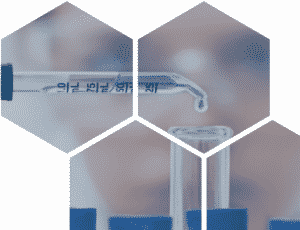Shaping Lives and Ensuring Futures
Developing strong leaders with biblical convictions for more than twenty years, Legacy Christian Academy enjoys a reputation for Christian education excellence. But with an evolved drug culture that has moved from street dealers to online ordering and discrete delivery, teens have access like never before; and often peer pressure to raise the ante. Like other faith-based schools, Legacy makes a concerted effort to keep its student population drugs, nicotine and alcohol free.
A program that evolved to stay true to Legacy’s values
Legacy Christian had long adhered to a zero-tolerance substance use policy, often the norm in private schools. If a student was in violation of that policy, his/her tenure at the school ended.
Recognizing that the zero-tolerance approach of the school’s current substance abuse program was not aligned with the school’s mission and core values, Legacy Christian Academy’s Associate Head and board members changed its policy. Redesigning its program to teach accountability, partner with
parents, and move toward a goal of redemption rather than a goal of punishment for lapses in behavior, Legacy’s Redemptive Universal testing program serves as a model for other educational institutions. Several guiding principles were prioritized as Legacy redesigned its program.
> Eliminating evasion of a test is fundamental; urine testing simply could not achieve this.
> The trust relationship with families is a cornerstone to any program.
> A punitive approach is not in line with the Christian values of redemption.
With the endorsement of the Board, and having engaged parents in the process, Legacy’s Associate Head began researching other programs, their outcomes, and testing solutions. Ultimately the program was formed up and implementation began in 2018.
> Saving one life or helping avoid a life of addiction is worth the drug testing cost.
Several elements in the testing program
remained—parent engagement is key-—
but significant changes were made as well.
Shifted from a punitive to a redemptive model. A three-tier system was implemented ranging from counseling for the first level to more intentional counseling and denial of leadership positions to potential separation for the final level. The goal remains to teach accountability for actions and give students, with the support of parents, every opportunity to change behavior thus rescuing them from a potential life of addiction.
Adopted “universal testing”. Testing of all 7th to 12th grade students is done on picture day in the Fall. Students’ awareness that they will be tested and that a hair test is the method delivers a powerful deterrent to usage during the summer break. Random testing is also conducted throughout the year to maintain a high level of deterrence to usage.
Moved from urine testing to hair testing. Staff and administrators knew that the 2-3 day detection window for urine was evaded by some students simply by abstaining for a few days prior to the test. By shifting to a hair test and its 90-day detection window, those tactics were eliminated, providing a powerful deterrent.
Engaged parents early. When the program was redesigned parents were consulted along the way, with overwhelming support for the changes. Some had concerns about the amount of hair removed for testing, but Legacy provided video evidence that this was not a valid concern.
Added staff testing. To demonstrate that teachers are held to the same standard, they are tested as part of the universal program.
Gave administrators flexibility. The Board empowered administrators to keep a student at Level 1 or Level 2 if the student was progressing with an occasional lapse. This was fundamental to the “redemptive” focus that was envisioned.
Expanded the 5-panel. Alcohol, nicotine, and benzodiazepines tests were added to the 5-panel. Other drugs may be added as needed.
Deterrence. Legacy’s Associate Head cites the Certainty of Detection as a Deterrent and a reason for students to avoid substance use.
Low Positive Rates. Since inception, positive rates have remained at or below 2%.
On average 9 of 10 drug users that are identified by a hair test are missed by a urine test.
A universal testing program is the surest way to have a drug-free culture. Just doing random testing is not enough.”
A hair test is an investment. But if your goal is to help kids, it’s worth every penny over and above what you are already doing. If it saves one or two from a life of addiction, or even a life for that matter, it’s well worth it.”
Kevin Mosley
Associate Head Legacy Christian Academy


Hair Testing Pioneer & Leader
For over three decades, Psychemedics Corporation has been the world’s leading drug testing company using hair. Psychemedics’ patented hair analysis technology is trusted by Fortune 500 companies, police forces, courts, schools and parents all over the world.
